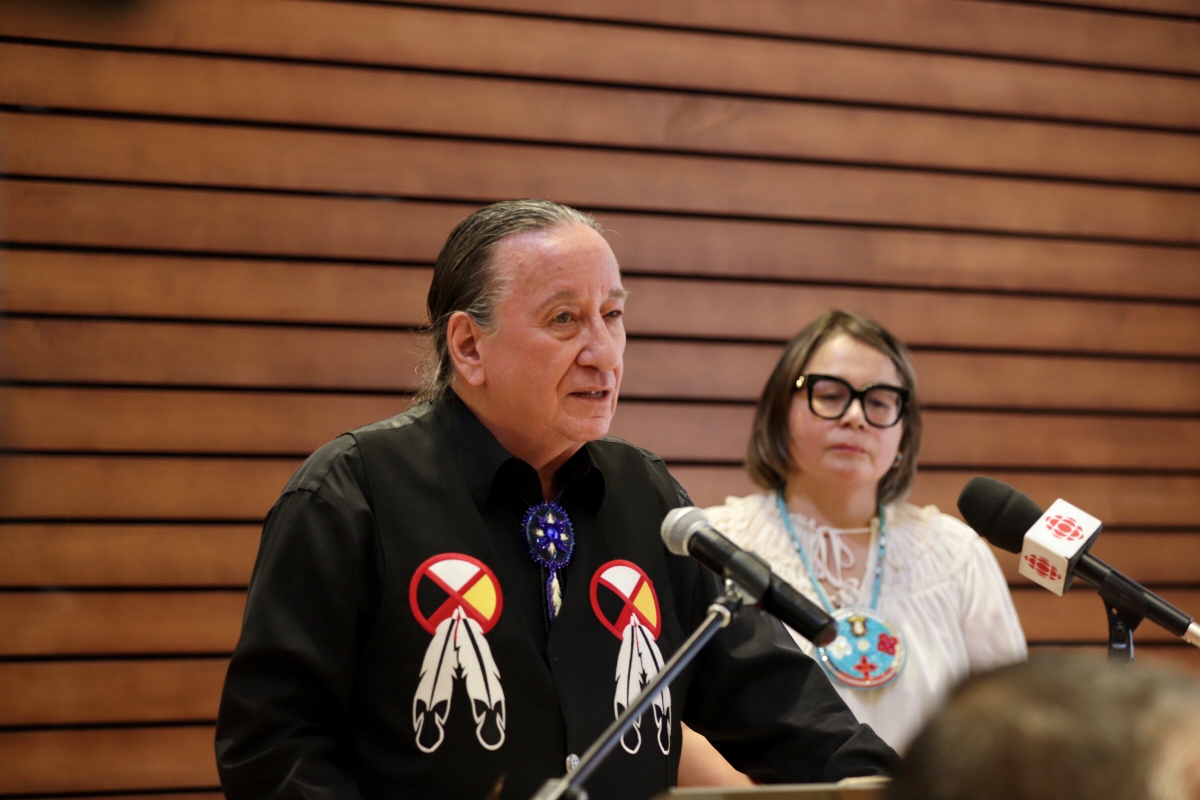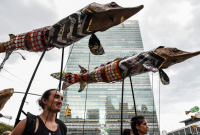Support strong Canadian climate journalism for 2025
Long before settlers stepped foot in North America, Turtle Island was governed by what Indigenous Peoples sometimes called sacred or natural law.
The terms are derived from the laws given by the Creator (sacred law) or laws that emerge from the nature of human beings and their relations, including animals and plant life (natural law).
These differ from civil law, which originated in Europe and is based on thousands of years of legal theories, ideas and systems, and common law, which is similar but derives from precedent cases.
Indigenous law is prescribed to “connect with the Creator: your mind, your heart, the Earth,” said Eva Ottawa, a civil law professor at the University of Ottawa and member of communauté Atikamekw de Manawan. She is the initiator of the first French-language Indigenous Law certificate, a program that will empower Indigenous students to understand and make their legal traditions their own.
“We need this to wake up our being,” Ottawa says.
A ceremony was held on Aug. 17 that included song, prayer and speeches from university representatives, federal Justice Minister David Lametti and First Nations leaders.
Justice Canada provided $595,565 of funding over three years to the University of Ottawa for the certificate.
The initiative aligns with the Truth and Reconciliation Commission's Call to Action 50, which calls on the federal government to support and promote Indigenous laws.
The program will also seek to bridge differences in colonial and Indigenous law.
The law certificate will incorporate Indigenous ways of knowing while learning mainstream law, says Gilbert Whiteduck, the university’s Elder-in-Residence and a student within the certificate’s first cohort.

“What we’ll be doing is looking at what is sacred law, what is natural law, from an Indigenous perspective, and what does Canadian law say about that?” Whiteduck told Canada’s National Observer.
“Because we believe we always had laws; that’s how we survived.”
The program is just getting started, Whiteduck says. Elders will be consulted, and each member of the cohort will bring special perspectives from their home nations and life experiences.
There’s a hunger for more Indigenous law among both Whiteduck and Elder Claudette Commanda, University of Ottawa’s chancellor.
For Whiteduck, there’s a hope this certificate will lead to a bachelor’s of Indigenous law, which currently doesn’t exist anywhere in the world.
For Commanda, she hopes the certificate’s momentum can create a mandatory dimension for all law students at the University of Ottawa.
It’s essential for all future lawyers to have an understanding of colonization, ancestral knowledge of law and key legal documents, like treaty rights and the Indian Act, she says.
“It has to become mandatory because these law students will become lawyers and they will be dealing with First Nation issues,” she says. “They might not be representing First Nation clients, but they will be making laws and changing laws.”
The program emerges at a time when reclamation work has become of central importance following the TRC’s calls to action on reconciliation. It’s work that Assembly of First Nations Regional Chief for Quebec and Labrador Ghislain Picard celebrates while remembering the past.
“What I’ve been witnessing and hearing in meeting with our peoples is the sense that identity is becoming even more important, especially for our young people,” Picard told Canada’s National Observer.
“There’s a sense that we need to find a way to move forward,” he continues. “It’s about empowerment, but we cannot underestimate the damage done to our peoples.”
Picard is referencing centuries of colonial oppression. Residential schools and unmarked graves are examples of how Canada had Indigenous Peoples on their knees, he says.
There was a story Picard heard years ago that stayed with him; it was about how Indigenous Peoples would have to hit rock bottom before rising up again.
That moment is now, Picard says.
“Our peoples have lost so much, but we haven’t lost everything.”
Matteo Cimellaro / Local Journalism Initiative / Canada’s National Observer






Comments
It may well be that indigenous communities have retained some wisdoms that industrialized 'colonialists' have lost, but the laws are the rules by which we run society; good for atheists as well as the religious. So this just seems like a step too far: "The terms are derived from the laws given by the Creator (sacred law) or laws that emerge from the nature of human beings and their relations, including animals and plant life (natural law)."
Why would we think that the various law systems of the disparate tribes of Canada have a special validity vs. Common Law, which embodies hundreds of years of careful reasoning and lived experience? That strikes me as arrogant.
As for 'sacred law' - this is always mediated by humans. As such, so called sacred laws are no more legitimate emanating from an indigenous person claiming divine inspiration than pronouncements from say, Pope Francis, or Ayatollah Ali Khamenei.